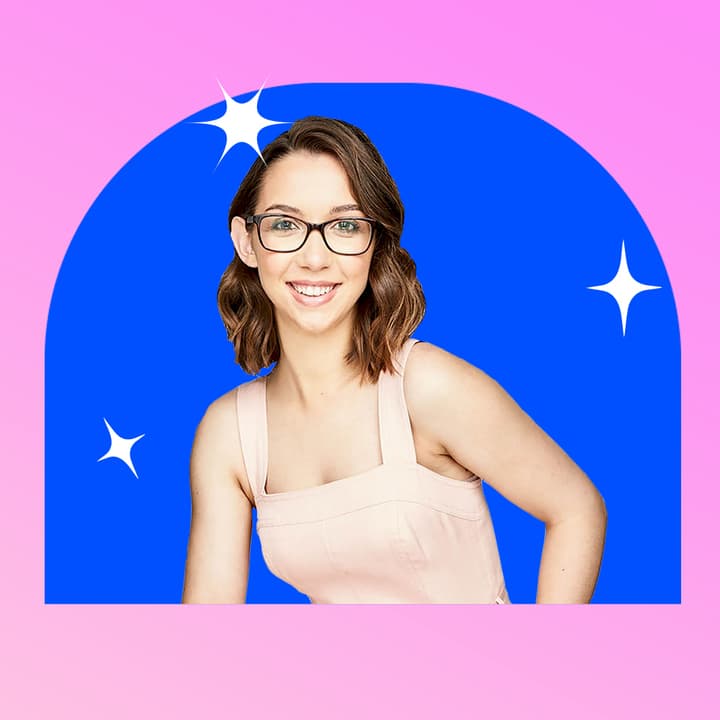POPSUGAR Australia is dedicating the month of September to featuring the next generation of inspired thinkers and courageous individuals who are building and manifesting a brighter future — because the next gen is unstoppable. We will deliver personal essays from young Australians who are making a name for themselves, as well as inspiring thought pieces and interviews with rising talent across different industries throughout the month. Find all of our pieces here, and if there’s someone you think is missing, email our editor so we can share their story — abardas@valmorgan.com.au.
It has always been my dream to become a scientist. When I was in primary school, my head was in the clouds. I wanted to become a meteorologist. I remember one class in kindergarten where our teacher, Mrs Small, sat the class around in a big circle and one by one, we’d stand up and tell the class what we wanted to be when we grew up. The boys would say they wanted to be astronauts and firemen, and the girls said they wanted to be ballerinas and vets, but me, I stood up and said that I wanted to be a meteorologist.
My fascination with the weather stuck with me through to high school but my passion quickly went to new heights from the clouds to the stars. My science teachers took my entire year group on an excursion to see a documentary about the Hubble Space Telescope and as I sat in the theatre, looking up in awe of these phenomenal photos of the Universe, I knew that I wanted, no, I needed to study the Universe. I wanted to be an astrophysicist.
Now, after five years of studying at university, I’m studying the stars of the Milky Way Galaxy for my PhD. I’m officially an astrophysicist but throughout my journey, what I never dreamed of becoming was a Science Communicator. I absolutely hated public speaking in school. Whenever I’d have an assignment that required a speech in front of my peers, I’d shake and sweat and wish it were over. One time, I even ran off stage during a 90-minute choir performance after just the first song! But now I love public speaking and presenting because I love talking about space.
My love for science communication grew during my first job out of high school as an astronomy educator at Sydney Observatory. I loved sharing my passion for space and astronomy and sharing the joy of looking through a telescope with people who often have never done so before. Watching peoples eyes light up with joy when they saw Saturn for the first time with their own eyes, and seeing the lightbulb go off above their head when I answered a question they’ve wondered about for years, were some of the things that made it so special.
A big lesson I learnt during my role as an astronomy educator is that common knowledge isn’t as common as you may think. What you consider typical may not be the same as what someone else does. I remember on one night tour at the Observatory I was explaining the orbits of the planets in the Solar System. During my explanation, one person had their mind absolutely blown when I mentioned that the planets all orbit on a similar plane around the Sun. I was so shocked because I had thought that was common knowledge, that was part of my version of common knowledge. But what I’ll never forget was how excited they were to learn this new fact.
This experience reminds me of a fantastic xkcd comic titled Ten Thousand. On average, 10,000 people in the US are learning something for the first time every day. If we laugh or make fun of people for admitting when they don’t know something, that will only discourage them from asking questions in the future and take the fun out of learning. I strive to put the fun back into learning, especially when it comes to learning about science!
Science is difficult to understand at the best of times, especially when you don’t have a strong foundation of scientific knowledge. The job of a science communicator is to effectively translate science and what scientists do and why in a way that everyone can understand because science is for everyone and science benefits everyone.
Even though I had never considered a career in Science Communication in the past, I love it to bits and wouldn’t trade it for the world now. I hope that with every TikTok I make, with every question I answer, someone is inspired to learn more and feel joy learning about our weird and wonderful universe.
Kirsten Banks is a Wiradjuri astrophysicist and science communicator, who is also currently completing a PhD at UNSW in Sydney. You can follow Kirsten on Instagram here.

